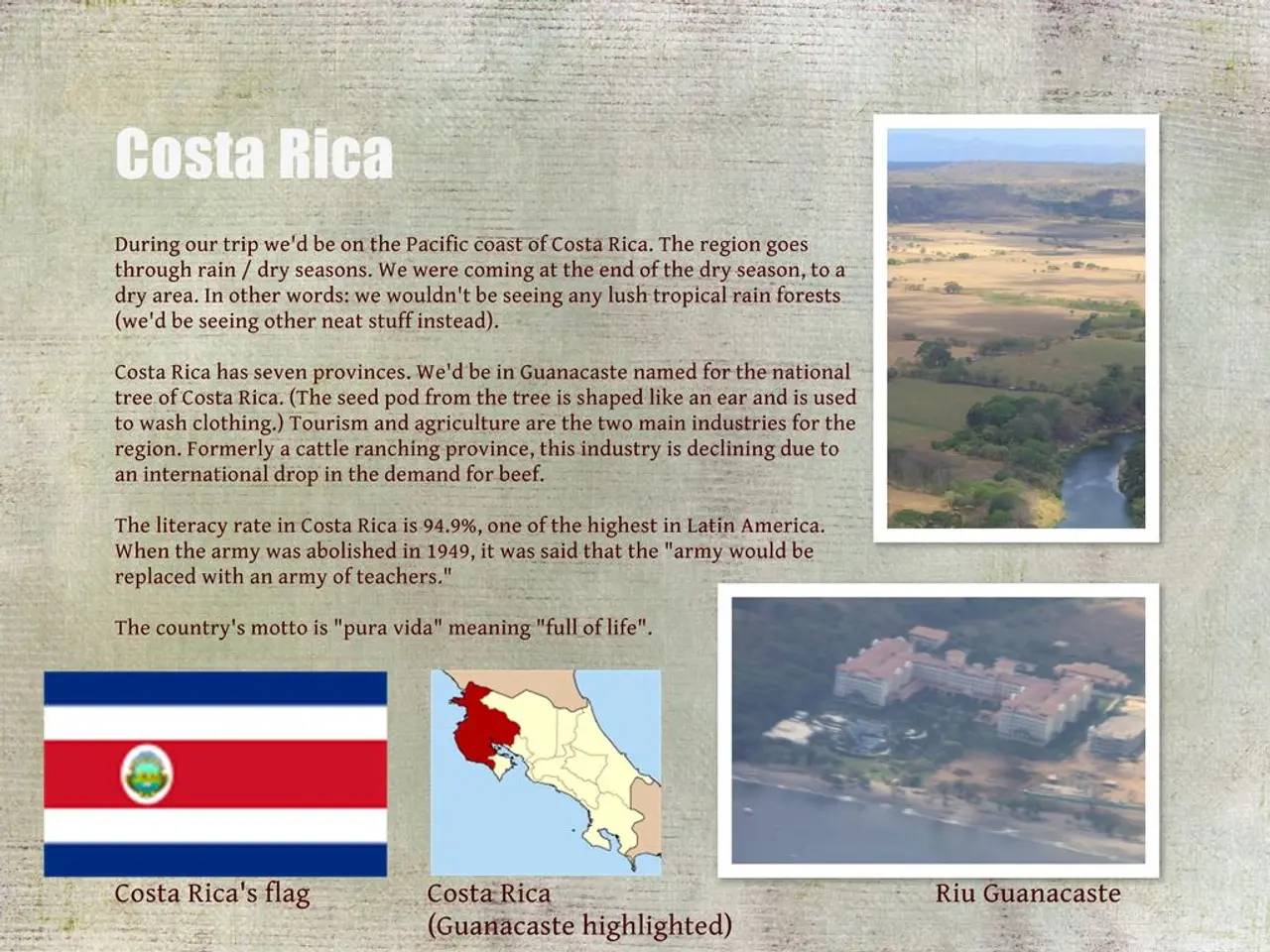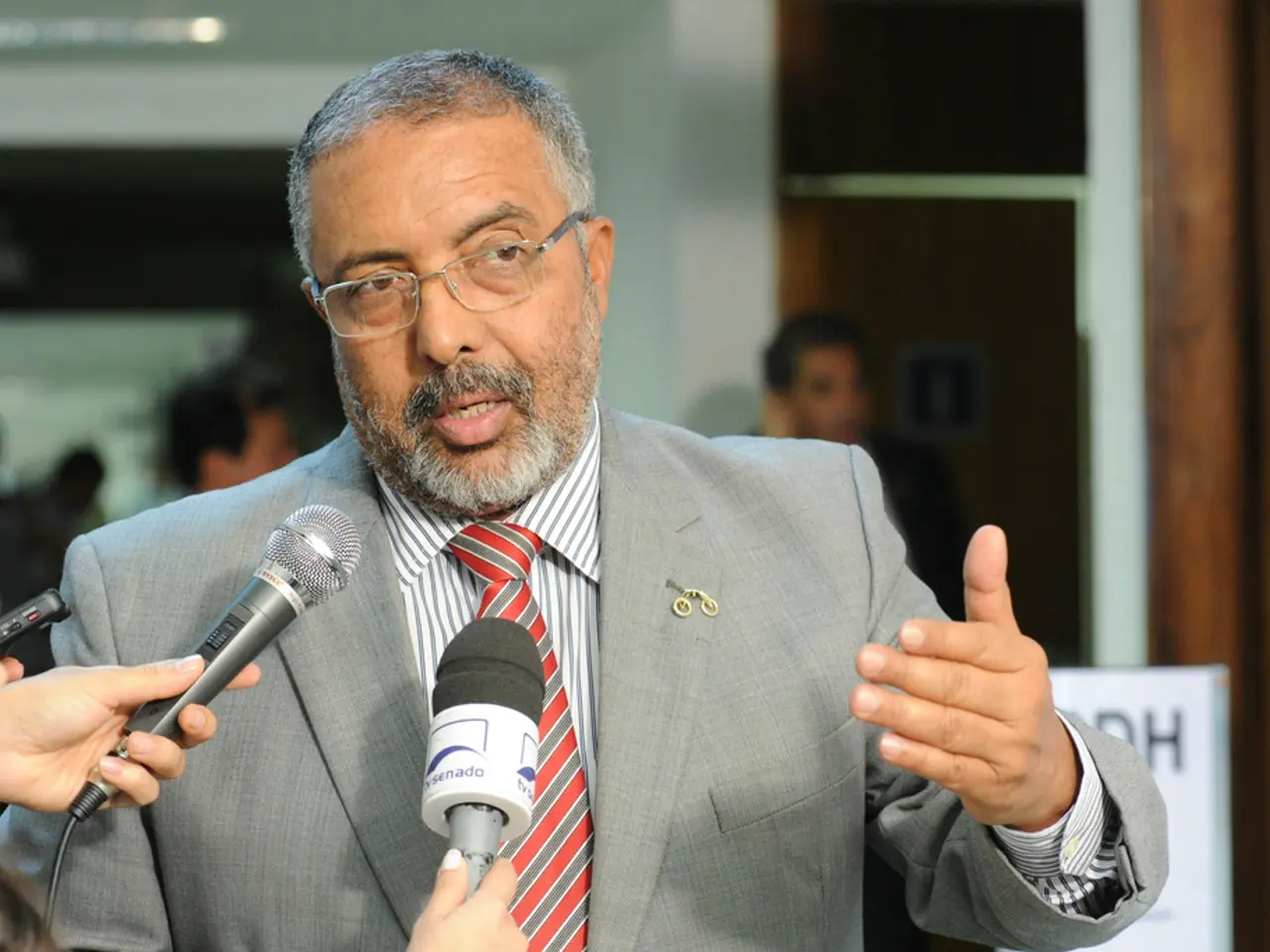Colombia's Unconventional Approach to Peace Talks: Suspending Extradition of Armed Group Figures
United States-bound negotiations with guerrillas in Colombia are set to be temporarily halted in their extradition processes.
Here's the scoop on Colombia's fresh tactic in handling peace talks with armed groups: they're gonna hold off on extraditing key figures to the United States, even if it rocks the boat with Washington. Gustavo Petro's leftist administration is all about bringing active leaders, including drug-trafficking guerrilla members, to the negotiation table instead of locking them up. Eduardo Montealegre, the new Justice Minister, says this move is all about dismantling organized crime and eliminating drug trafficking.
But Colombia's been hesitant to extradite some high-profile guerrilla leaders wanted by the U.S. for drug trafficking. Fun fact: the South American country's received billions from the States over the years to help in its anti-drug and security efforts. Yet their relationship, which is usually a tight-knit one, has hit a rough patch, thanks to squabbles between President Petro (a former guerrilla himself) and Donald Trump. Rumblings are growing in Washington that Petro's "total peace" policy is letting drug trafficking run wild.
But Montealegre insists this policy isn't a chance for drug traffickers to get off scot-free. To avoid extradition, illegal group members must show they've disarmed, stopped violence, and are moving away from illicit crop production. He promises robust controls to keep crooks pretending to seek peace at bay.
Now, what about the U.S.'s reaction to Colombia's refusal to extradite key drug trafficking players? Some in Washington are clamoring for Colombia to be added to a drug trafficking blacklist, which could cut funding and hurt its image. But Montealegre calls this measure unfair, arguing that no country puts in more elbow grease in the war against drug trafficking than Colombia, often working hand-in-hand with the United States. Interestingly, he says if peace talks go south, the individuals sought by the U.S. would be escorted out of the country "right away."
But let's delve deeper into this controversy. Colombia's recent policy of rejecting key U.S. extradition requests for figures involved with armed groups participating in peace talks is part of President Gustavo Petro's "total peace" strategy. This strategy prioritizes integrating these groups into peaceful processes by requiring them to disarm, stop violence, and transition away from illicit crop production[1][2][4].
This stance has created tension with Washington, as some U.S. officials have called for Colombia to be placed on a drug trafficking blacklist (a process known as "decertification"), which could cut funding and damage Colombia's international reputation[2][3][4]. Decertification risks losing U.S. security assistance that is critical for Colombia’s fight against drug trafficking and crime; U.S. support includes tens of millions of dollars in aid, covering air, maritime, intelligence, and other operations[3]. Colombian officials argue that such punitive measures would be unfair, given Colombia's substantial efforts to combat drug trafficking, often in cooperation with the U.S.[2][4].
So, there you have it: Colombia's unique approach to peace talks has created friction with the U.S. but remains unapologetic about its priority on achieving peace, even if it means shaking things up with Washington. Stay tuned to see how this plays out.
- The unique approach by Colombia's administration in handling peace talks with armed groups, as shown through the suspension of extradition for key figures, is a significant move within the realm of politics and policy-and-legislation.
- There's been growing tension between Colombia and the United States, with some U.S. officials calling for Colombia's decertification, a process that could potential cut funding and damage Colombia's international reputation, due to Colombia's stance on war-and-conflicts and crime-and-justice.
- The General News landscape has been buzzing with discussions about Colombia's "total peace" strategy, which prioritizes the peaceful integration of armed groups, and the potential impact of this strategy on its relationship with the United States.






